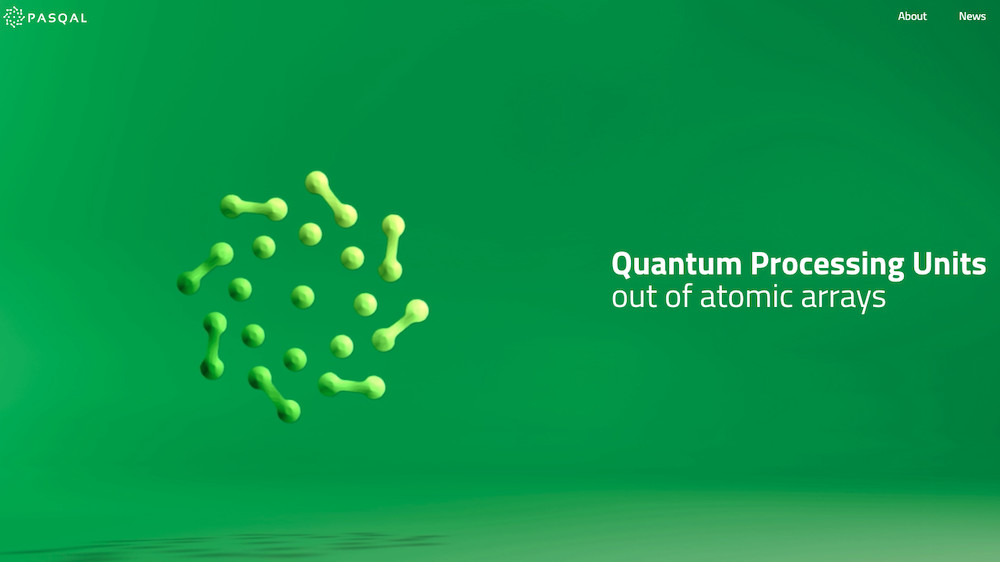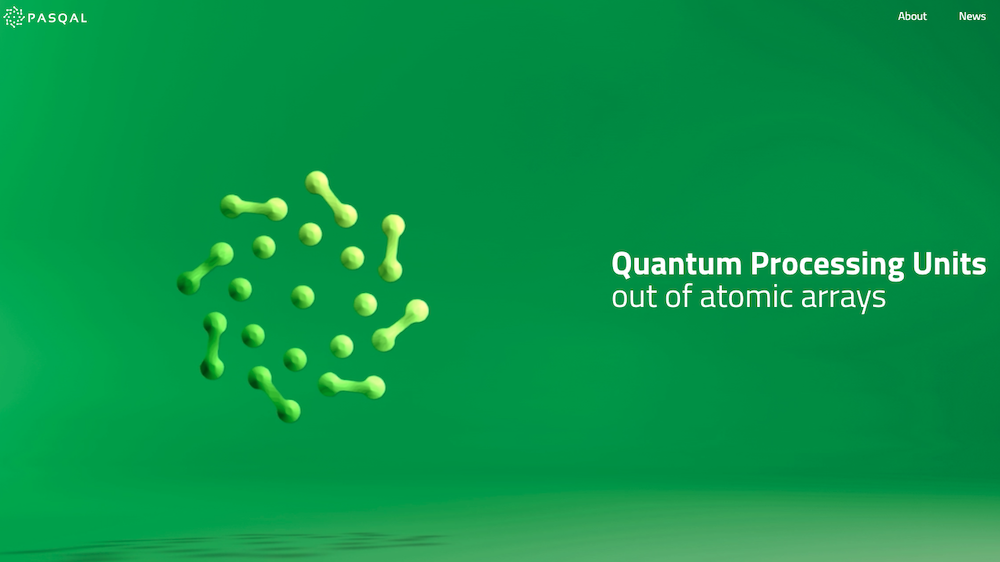
World leader in the manufacture of quantum processors, Pasqal has developed a promising technology based on neutral atoms, which today enables it to master more than 100 atoms, whereas superconducting circuits, the most advanced quantum method to date, are currently limited to about 50 qubits. For its part, Atos has been studying the acceleration opportunities offered by neutral atoms for more than two years and is contributing to advances in research by developing the software specific to this technology, which has led to several scientific publications and patent filing.
The collaboration will lead to the integration of Pasqal's technology into Atos’ HPC solutions environment. The collaboration will be based on Atos' software development and quantum simulation platform, the Atos Quantum Learning Machine (QLM), combining Atos' expertise in algorithmics with Pasqal's development processors.
"We are pleased to collaborate with Pasqal and continue to enrich our quantum ecosystem with one of the most innovative European companies in this field," said Cyril Allouche, Fellow & VP, Director of the Quantum R&D program at Atos. "Since the launch of its dedicated research program, Atos has adopted a multi-technology approach, which is reflected in the support of different quantum systems, such as superconductors, ions and neutral atoms, in Atos QLM. In this way, we hope to enable our users to experiment and develop their quantum applications on the widest range of quantum technologies."
Georges-Olivier Reymond, Managing Director at Pasqal, commented: "We believe in hybrid computing, where quantum processors will accelerate conventional computers, with performance that will improve over the years. We are already working on a processor of more than 100 qubits, and our technology has a unique ability to scale beyond that. Working on the integration of these new technologies, with a pioneer and leader such as Atos, is therefore fully in line with our strategy to make them accessible to HPC users today."
Atos, a pioneer in quantum computing
In November 2016, Atos launched an ambitious program to anticipate the future of quantum computing, called 'Atos Quantum'. As a result of this initiative, Atos was the first player to offer a quantum noise simulation module as part of its Atos QLM offering. Atos QLM and Atos' expertise is now contributing to numerous European programs, including the AQTION (Advanced Quantum computing with Trapped IONs) project, the PASQuanS (Programmable Atomic Large-Scale Quantum Simulation) project and more recently the NEASQC (NExt ApplicationsS of Quantum Computing) project.
The collaboration will lead to the integration of Pasqal's technology into Atos’ HPC solutions environment. The collaboration will be based on Atos' software development and quantum simulation platform, the Atos Quantum Learning Machine (QLM), combining Atos' expertise in algorithmics with Pasqal's development processors.
"We are pleased to collaborate with Pasqal and continue to enrich our quantum ecosystem with one of the most innovative European companies in this field," said Cyril Allouche, Fellow & VP, Director of the Quantum R&D program at Atos. "Since the launch of its dedicated research program, Atos has adopted a multi-technology approach, which is reflected in the support of different quantum systems, such as superconductors, ions and neutral atoms, in Atos QLM. In this way, we hope to enable our users to experiment and develop their quantum applications on the widest range of quantum technologies."
Georges-Olivier Reymond, Managing Director at Pasqal, commented: "We believe in hybrid computing, where quantum processors will accelerate conventional computers, with performance that will improve over the years. We are already working on a processor of more than 100 qubits, and our technology has a unique ability to scale beyond that. Working on the integration of these new technologies, with a pioneer and leader such as Atos, is therefore fully in line with our strategy to make them accessible to HPC users today."
Atos, a pioneer in quantum computing
In November 2016, Atos launched an ambitious program to anticipate the future of quantum computing, called 'Atos Quantum'. As a result of this initiative, Atos was the first player to offer a quantum noise simulation module as part of its Atos QLM offering. Atos QLM and Atos' expertise is now contributing to numerous European programs, including the AQTION (Advanced Quantum computing with Trapped IONs) project, the PASQuanS (Programmable Atomic Large-Scale Quantum Simulation) project and more recently the NEASQC (NExt ApplicationsS of Quantum Computing) project.




 IonQ Achieves Industry Leading Performance on Next Generation Barium Qubits
IonQ Achieves Industry Leading Performance on Next Generation Barium Qubits